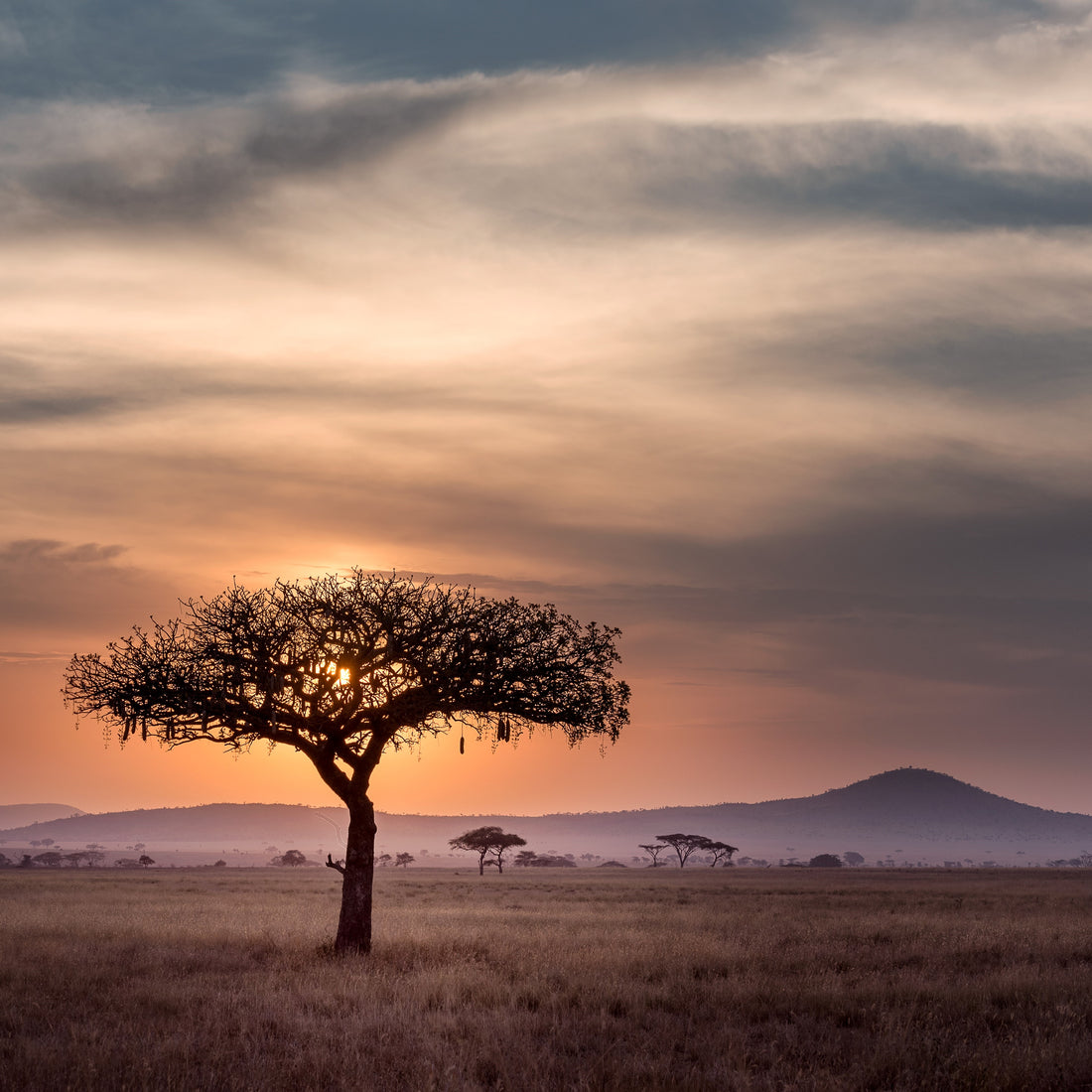
Tanzania: From Volcanic Depths
Share

Home to Mount Kilimanjaro, Tanzania is an incredibly diverse territory. Desert, waterfalls, and even islands make up this, one of the world’s most biodiverse countries. However, as coffee lovers, we are much more interested in Mount Kilimanjaro.
Volcanoes have forever been a good indicator of a country that’s a good match for coffee. This is due to two facts: volcanic territory usually means high altitudes, which are key for growing coffee, particularly arabica. It is generally accepted that higher altitudes yield better coffee.
Second, volcanic soil. Miles around the volcanic area, the soil has been enriched for millions of years thanks to eruptions that have buried tons of different nutrients, particularly minerals, in the soil. It also changes the texture of the soil to one with much better drainage, which coffee loves.
Of course, this only applies to dormant volcanoes!
A good example of this is South America. The Andes Mountain Range runs through all South American countries that produce coffee, which has played a huge role in why this coffee is considered one of the best in the world. For the most part, coffee-growing countries have some sort of volcanic presence in their land.
History of coffee in Tanzania
Close neighbors with Ethiopia, the birthplace of coffee, Tanzania was quite familiar with coffee before it began growing coffee as an export.
In the early 16th century, Tanzania was already brewing coffee and growing a lot of coffee to consume the actual fruit. The fruit, usually named coffee cherry, has little to no flesh. It is skin, a thin layer of flesh, then the beans. Yet by thoroughly chewing these and sucking for a few minutes, the amount of caffeine you consume can be very close to that of an actual cup of coffee.
Tanzania seems to be one of the only countries where this practice has been recorded. So, right from the very start, their relationship with coffee has been special.
It wasn’t until the 19th century that Tanzania began professional growing coffee. This was when Tanzania was made a German colony. Immediately, coffee farms were formed all over the country. The country’s coffee production tripled over the span of a few years.
It immediately became apparent that Tanzania had something special to offer the world: peaberry coffee.
Peaberry coffee
In about 2-4% of all coffee, there occurs a genetic mutation that makes each coffee cherry yield only one bean instead of two. This bean will have a very distinct shape and size and is said to be more flavorful than regular coffee, having the flavor of two beans concentrated in one.
In Tanzania, after centuries of breeding, they’ve been able to up the occurrence of the mutation so much that they are now the most important producer of peaberry coffee in the world. Although all of Tanzania’s coffee isn’t peaberry, most of it is. Chances are that, if you buy Tanzanian coffee, you’re buying peaberry coffee.
The differences between regular beans and peaberry are probably too small for the untrained eye to notice. Although one way to tell is that, while arabica beans are oval-shaped, peaberry beans tend to have a more rounded shape. This is a good way to tell them apart.
Tanzanian coffee
But of course, the sole fact of being peaberry coffee does not guarantee quality. Tanzanian coffee is famous because of its outstanding quality that although fits the expectations of African coffee, manages to go above and beyond.
A lot of this has to do with the volcanic soil. It is known that volcanic soil gives coffee a certain edge. It seems that coffee grown in volcanic soil has a more natural-feeling acidity, feeling less astringent and more fruit-like. A certain sweetness is also found in coffees grown in volcanic soil.
Most importantly, Tanzanian coffee is famous for its acidity. It has got a bright, sweet acidity that is often attributed to sweeter fruit like pears. When it comes to the body of the coffee, Tanzania is also notorious for having a pleasant, full body.
In the end, what has made Tanzanian coffee one of the African favorites around the world is its richness of flavor. Each sip has such a deep flavor that it etches itself into your mind. This is definitely thanks to peaberry beans which have a much richer flavor than other types of coffee.
Our Tanzanian blend is without a doubt the full expression of all these good qualities - and more!
We’ve worked hard to make these fruit-like and floral flavor and aroma, achieving a unique coffee with tasting notes of pears, jasmine, and strawberry. It is a coffee that feels much more naturally sweet than it does bitter or acidic.
While most coffees find strength in balance, this slight tipping of the scale toward sweetness is what makes our Tanzanian blend excellent.
Conclusion
Unique even amongst some of the most unique coffees in the world, Tanzanian coffee is certainly something to be reckoned with. Its special flavor sets it apart and once you taste it once you’ll be able to tell it apart from all other coffees.
